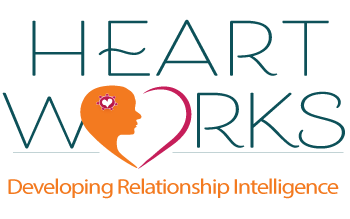
In a person, a blind spot can mean an area where a person fails to exercise judgment, awareness, or perspective. In a relationship, a blind spot can mean any area a person fails to recognize is impacting their relationship either in a negative way or as a needed growth area.
In technical terms, a blind spot is a range of view that is blocked. For example, while driving you may not see a motorcycle zoom past you even when you look at your side view mirror.
This is because it may have been your blind spot. This is also why we sometimes hear about how accidents happen when someone reverses their car.
Shedding light on blind spots can make the difference in whether your romantic relationship thrives or fails. We all have blind spots as we are only human (with flaws). Bringing your blind spots to awareness and understanding what yours may be can have a lasting impact on the quality of your relationships, both in the romantic and non-romantic sense.
To overcome blind spots, we can practice asking ourselves (or you can do this with your partner!) the following three questions:
- What can of person am I becoming?
As humans we are constantly changing….every minute, day, week, month and year based on our experiences. Asking ourselves this question shows a willingness to look at yourself. Learning to be as honest as possible with yourself is key; understanding that conflicts and problems in your relationship aren’t just about your spouse’s faults, personality, or behaviour. It takes two people to have a healthy and strong relationship. It starts with you.
We all come into our relationships as unique individuals with different histories and relationship experiences. Additionally, we all have different familial background and ways we modelled love, affection, and comfort. Understanding how your background has influenced and shaped you is important.
- Is your communication style with your partner effective?
Dr. John Gottman, one of the foremost experts on couples with over four decades of research, reports he can predict with 94% accuracy whether a couple will break up. He does this by observing them for 15 minutes while they try to resolve an ongoing disagreement.
Based on his research, it is the way a couple argues that indicates whether they will remain together. He cites contempt as the number one culprit; if a couple continues with this type of communication style over time, they will most likely break up, or if it is a marriage, get a divorce.
Contempt is attacking your partner’s sense of self by conveying disgust. It can be expressed both verbally and non-verbally. Verbally, it is often expressed as harsh judgment, insults, sarcasm, hostile humour, and name-calling. Non-verbally, it can be expressed by rolling eyes, a dirty look, curling the lips, or sneering. Oftentimes, couples do not realize they are displaying signs of contempt when communicating with their partners. Making a conscious effort to notice these verbal and non-verbal expressions are important in creating a better environment for one another.
Is your communication style impacting your relationship in a positive or negative way? This question is an excellent topic to bring up when your partner perhaps over a meal or a drink, when both are in a relaxed state. Having an open, honest discussion from time-to-time is a good way to ensure both parties are happy with how each partner is communicating.
- Do you practice clear boundaries in your relationship?
Often in relationships, boundaries can become blurred. It is good to establish clear boundaries between your partner and yourself as good boundaries can keep you from stumbling and falling on the slippery slope of infidelity and other unsavoury behaviours.
A boundary is a clear line of demarcation. One should actively be putting up clear lines around our personal boundary and our relationship boundary as well. When we do so, we are stating claim to what is ours and what we will accept and do not accept. Good boundaries apply to our behaviours, thoughts, feelings, choices, and decisions. A healthy relationship is when a couple respects each other’s’ boundary and the boundary of the relationship for the couple itself.
Asking the above three questions is a good place to start when examining our own blind spots. The questions posed are not exhaustive, but they can be helpful.
Relationships take work; it can be viewed as your personal investment. A good relationship between your partner and your will create positive ripples in other areas of your life. The blind spots you identify and work on can also be used in your relationship with your parents, children, work environment and so on. In short, you have everything to gain when working on your blind spots!
